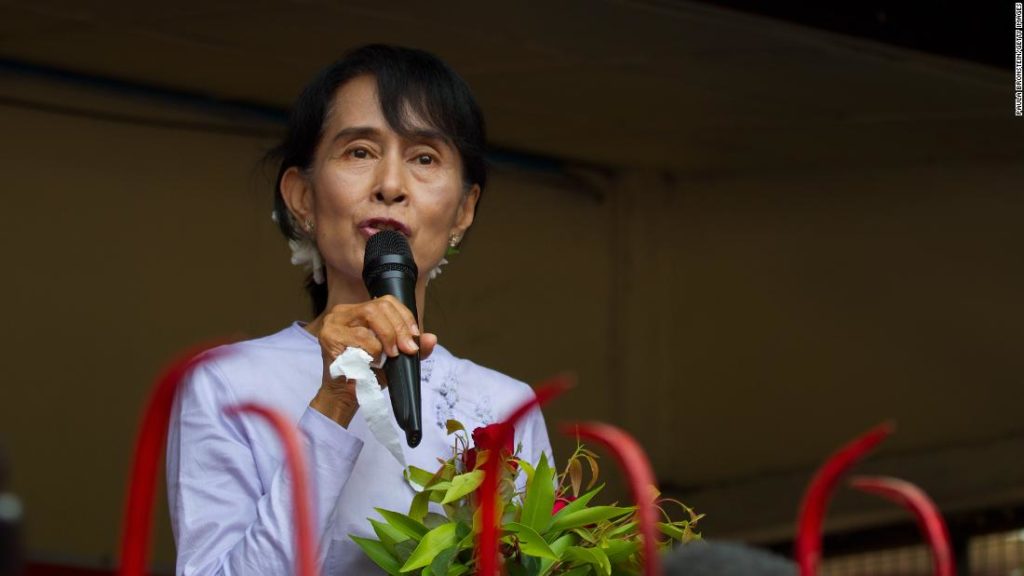
Suu Kyi’s victory was lauded within the international community, where it was viewed by many as a triumph of democratic values over the forces of authoritarianism. But true democracy requires more than a single election victory.
The constitution which abolished the military junta maintained for the generals a huge amount of power and influence, leaving Suu Kyi and the NLD in a delicate position as they tried to maintain democratic rights, while avoiding tilting the country backwards into military rule.
Ten years after her initial release, Suu Kyi now appears to be heading back to where her rise to international prominence began: in detention, her fate at the whims of the Tatmadaw, the military which has ruled over Myanmar for most of the last 50 years.
Speaking to CNN Monday, Melissa Crouch, an expert on Myanmar at the University of New South Wales, said that the generals may see such alliances as a potential counterweight to any international outrage that might come as a result of the coup.
“Myanmar has China and Russia on their side, they are not worried about Western democracies,” she said, pointing to recent visits by delegations from both Beijing and Moscow ahead of the coup.
Wells, the University of Melbourne expert, said that Myanmar’s military elites “learned very well how to bunker down in the face of international criticism.”
The biggest challenge to the coup will come internally, Wells said, and will depend on the military’s ability to control an activist community and middle class that is considerably empowered since 2015, as well businesses and others who have benefited from the international engagement that came after the transition to democracy and will be unwilling to see the country slip back into pariah status.
“In Myanmar there are a lot of people making a lot of money, and they will be pressuring military elites to not disrupt the growth and stability that there has been in the cities,” he added.
As the coup unfolds, its leaders appear to be making a concerted effort to prevent Suu Kyi’s supporters and other opponents of military rule from organizing against them. As well as Suu Kyi and other senior NLD leaders, there were reports of arrests of numerous members of parliament, representatives of ethnic groups, and human rights activists.
“Last time they pulled a coup, there was no (Facebook), no actual internet to speak of in Burma. Mobile phones cost $2,000 for a Nokia. Nobody had computers or cars. It was a different Burma,” she wrote, adding that senior military figures “may not realize this because they are still kind of disconnected from society.”
At least someone was aware of the potential for the internet to serve as a means to organize resistance however. As the coup was unfolding Monday morning, internet and phone coverage was cut off in parts of the country, and television stations were blocked or forced offline, as people scrambled to try and find out what was going on.
“And remember Myanmar’s a country awash in weapons, with deep divisions across ethnic (and) religious lines, where millions can barely feed themselves,” he added.
You may also like
-
UK coronavirus variant has been reported in 86 countries, WHO says
-
NASA technology can help save whale sharks says Australian marine biologist and ECOCEAN founder, Brad Norman
-
California Twentynine Palms: Explosives are missing from the nation’s largest Marine Corps base and an investigation is underway
-
Trump unhappy with his impeachment attorney’s performance, sources say
-
Lunar New Year 2021: Ushering in the Year of the Ox

